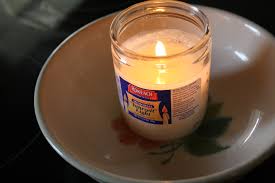
In todayŌĆÖs Covid environment, those of our loved ones living in a nursing home or hospitalized are bereft of visits from family and friends. Did you ever wonder how someone in such circumstances interacts with nurses, therapists, and staff when weŌĆÖre not around? My wife, Rivka Elling, aŌĆØh, was resident in King David Nursing and Rehabilitation Center this year, from March 11 until her passing, on September 29. Most of the conversations we had with her centered on matters mundane and routine, with one notable exception: she was very scrupulous in ensuring that the electric Shabbos lights were functional each erev Shabbos.
During shiva, three staff members of King David came to our home to be menachem avel. During this visit, they opened a window on RivkaŌĆÖs interactions with the staff. For instance, after recovering from a Corona infection sometime in June, she remarked: ŌĆ£G-d loves me. He protected me from the Coronavirus.ŌĆØ I was on the edge of my seat as they went on. It quickly became obvious that she lived on a higher spiritual plane than most. But rather than hearing further from me, read from the pen of Yaffa Citer, below, who works at King David as an occupational therapist:
* * *
Hope all is well with you and your family. Here are some of my
thoughts that I and some of the other therapists have thought of when we think
about Rivka, aŌĆØh.
Rivka always enjoyed
shmoozing about her family, especially her grandchildren. If any of her
grandchildren reached a new milestone, she was so excited to tell her
therapist. She was always happy for her family and their activities despite her
suffering.
Judaism was not just RivkaŌĆÖs
religion but her way of life. She would always incorporate Hashem into all her
actions. For example, Rivka would say, ŌĆ£ItŌĆÖs all min Hashamayim ŌĆō itŌĆÖs
meant to be ŌĆō for some reason, I am supposed to go through this suffering,ŌĆØ
Then she would continue on with the task we were in the middle of in therapy.
Additionally, Rivka would manage to incorporate Jewish topics into conversation
with any therapist, Jew or non Jew. She wore her Jewish badge with honor.
Tznius was
of utmost importance. For example, even when Rivka did not have strength to
reposition or sit up in bed, she would somehow use her hand to make sure her
hair was covered at all times. This is not easy when one is in a medical
facility and constantly being checked on. It is easy for one to lose a sense of
dignity ŌĆō but not Rivka. She always made sure to be dressed according to halacha.
I remember about a
week before Rivka passed. It was erev Yom Kipper. She was so
excited to daven and have her machzor with
her. I helped her navigate through the machzor to ensure that
she would be prepared for the last High Holy day of her life. What a privilege.
Rivka was always concerned
for the well-being of the therapist, despite her condition. On erev Shabbos, she
would say, ŌĆ£Are you done cooking? You sure you donŌĆÖt need to go home?ŌĆØ After I
told her that I am ready and want to treat her, she replied by telling me some
easy recipes to ensure that I would have my food prepared and ready in time
for Shabbos.
Rivka did not have family
around in King David. She suffered tremendously and could have easily found
loopholes to many halachos, even
on Shabbos. However, she was careful not to use electricity or
technology. She was a warrior. Rivka pushed herself until her body couldnŌĆÖt
fight anymore. When Rivka realized at the end that she was not going to walk
again, the only thing she wanted was to go home. She wanted to just see
her nachas, her family, live life according to the Jewish way.
We still talk about her and
quote her in King David. We will miss her very much. May your family have a
true nechama.
* * *
As her husband, I
merited to be in RivkaŌĆÖs presence only twice during her stay: for medical
appointments held in Pikesville on September 16 and on September 29. She passed
away on the 29 in the physicianŌĆÖs
office while awaiting transport back to King David. When I tearfully notified
the nursing home, their immediate response was ŌĆ£No way!!!ŌĆØ Rivka seemed to be
stabilized at that point. However, as I later found out, on the last day of her
life, Rivka reached a level of prescience, for on the way out of King David,
she turned to tell the social worker, ŌĆ£ItŌĆÖs all over.ŌĆØ Her neshama should have an aliyah,
and may she be a meilitz yosher for
us all.






